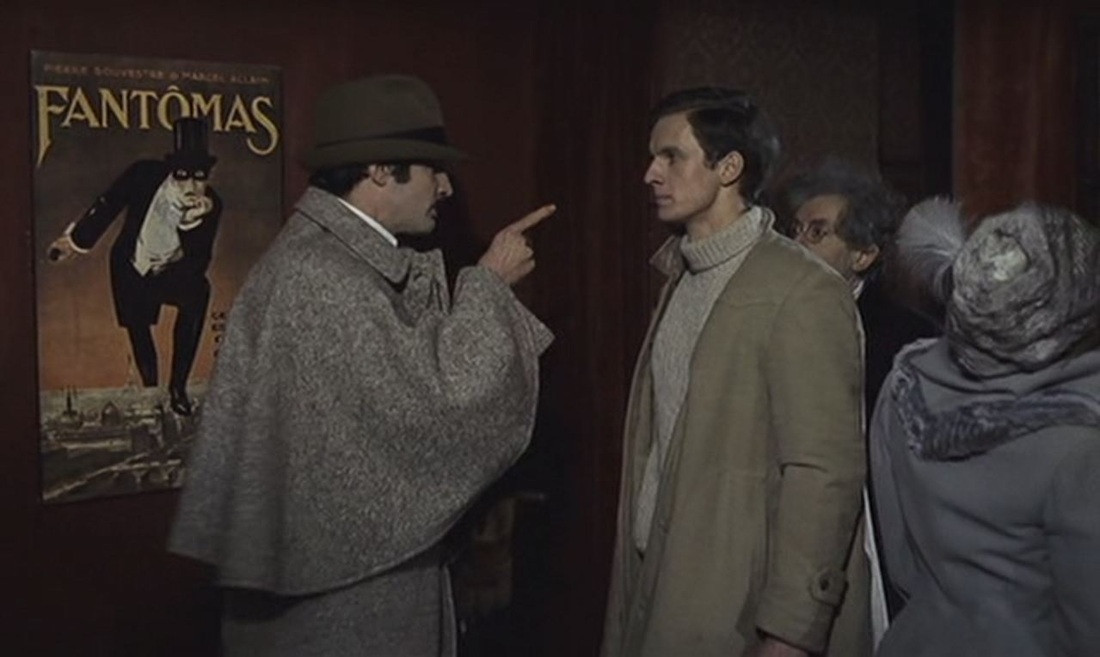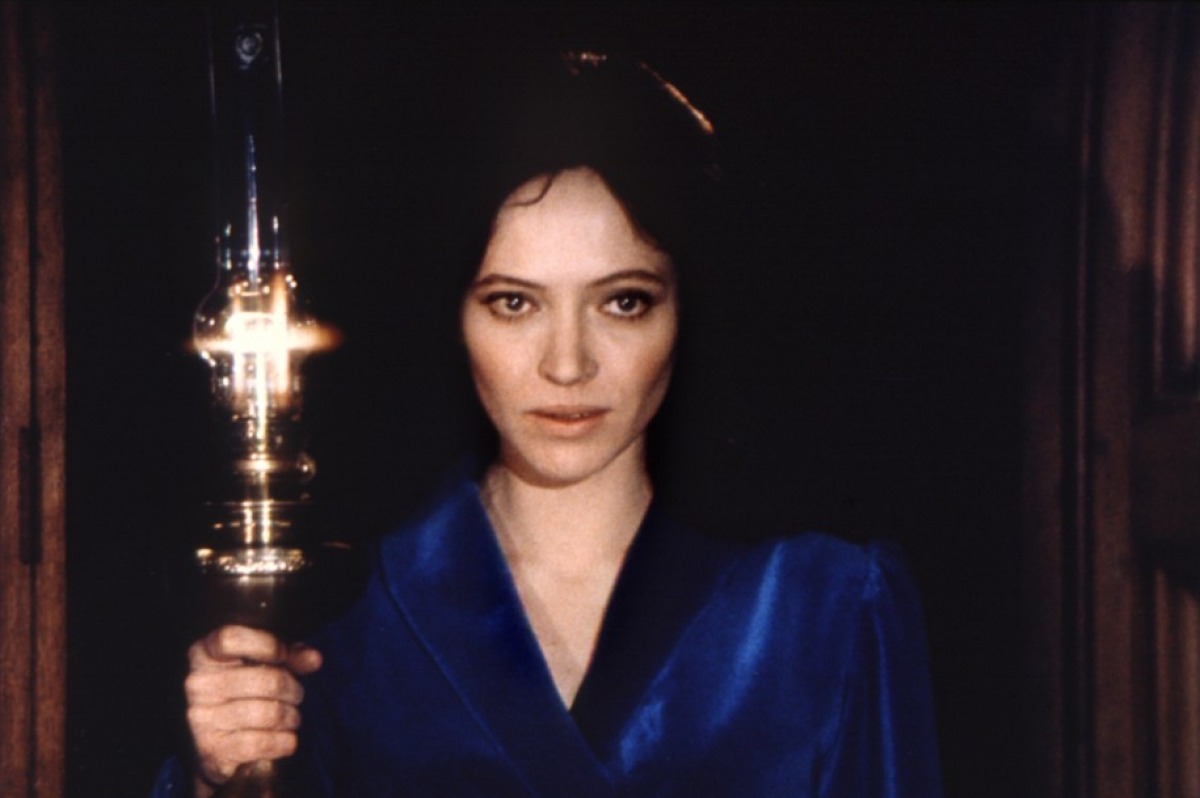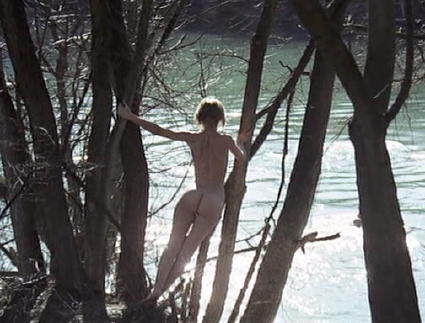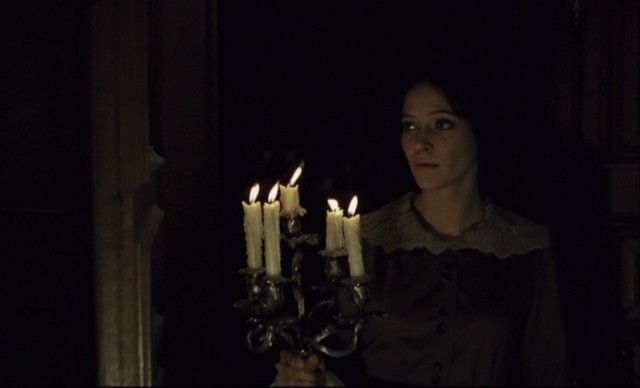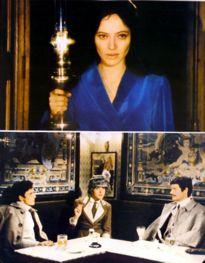From my Spring 2006 DVD column in Cinema Scope (“Global Discoveries on DVD”). For more material about Delvaux in general and this film in particular, go here. — J.R.
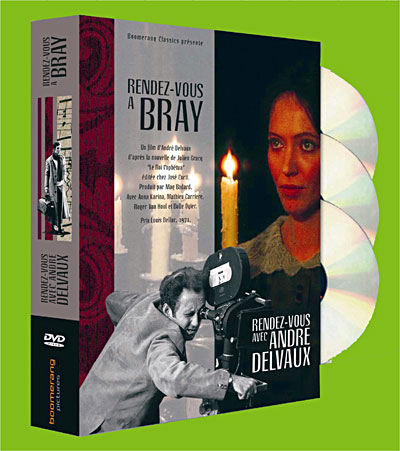
My selection of Rendez-vous à Bray (1971) by André Delvaux (1926-2002) as the best box set of the year in Masters of Cinema’s end-of-the-year poll as well as one of the best in DVD Beaver’s (even though they point out that technically, it was released in late 2004) prompts a bit of explanation. When I reviewed this Belgian film and period mood-piece for the April 1976 Monthly Film Bulletin, my appraisal began as follows: “An appealing foray into ambiguity that uses ellipsis as a kind of erotic invitation, Rendezvous at Bray largely wins one over because its more modest ambitions are so gracefully realized. Derived from a short story by Julien Gracq —- a writer whose rather specialized terrain seems midway between the Gothic novel and Surrealism —- its boundaries are clearly marked by its cozy range of cultural references and its attractive period atmosphere, both of which allow for fireside reveries more nourishing to the imagination than to any prolonged analysis.”
The erotic spells of Anna Karina and Bulle Ogier in the film as well as other virtues must have wound up counting for much more than my demurrals, because when I first heard about a box set devoted to this film last fall, in a post by Fred Patton to the excellent chat group “a film by” (http://movies.groups.yahoo.com/group/a_film_by/message/31667), I was amazed at how vividly the sensual allure of this film remained firmly lodged in my memory, and I decided I had to hunt down a copy. With Patton’s help, I was able to find a way of ordering this set (with two DVDs, a CD, a paperback book, and a pamphlet) online from Belgium. (2012: Sadly, this is no longer available, except at exorbitant prices for collectors. Read it ‘n’ weep.)
I’m still trying to decide whether Rendez-vous à Bray is something major or if it’s just a beguiling enchantment, but at this point I’m prone to call it at the very least a major enchantment. Mostly it charts a mysterious night in 1917 spent by a Luxembourgian pianist and music journalist (Mathieu Carrière) who’s been summoned by a friend, a soldier and composer (Roger van Hool), to his house in a Paris suburb. The friend inexplicably never puts in an appearance, but the woman (Karina) who prepares dinner, whose identity is never clarified, eventually takes him to bed. This narrative is periodically punctuated with flashbacks involving the two friends as well as the soldier’s girlfriend (Bulle Oger), a character who doesn’t exist in Gracq’s story. Though it’s in color rather than black and white, beautifully shot by the great Belgian cinematographer Ghislain Cloquet (who also did outstanding color work for Demy, Bresson, Polanski, and Penn), Rendez-vous à Bray is closer in spirit to something like Gertrud in its haunted silent-movie textures (including many irises) and its sexy absences and intervals than it is to something like Jules and Jim — which it more superficially resembles, at least in the flashbacks. (Maybe the fact that Dreyer wanted to shoot Gertrud in color is relevant.)
The multilingual box set, most of it in French, Flemish/Dutch, and English -— prepared with Delvaux’s input a few weeks before his death — is an exquisite labor of love. Philippe Raynaert’s graceful 24-minute intro, «Rendez-vous with André Delvaux» — which comes closer to a nourishing prolonged analysis than my 1976 review suggested was possible — spells out the contents, designed to show Delvaux’s close involvements with painting, music, literature, and cinema. All of these are evident in the feature, explicated in Raynaert’s lecture, and further represented, respectively, by Delvaux’s half-hour With Dieric Bouts (1975); the 20-minute Moviola (1985) about his collaborations with Frédéric Devresse (a composer he often worked with) plus a CD with his music (including also music by Brahms and Franck) and dialogue from the film; a paperback edition of Gracq’s 78-page story, in French only, with a preface by Gracq about Delvaux; and Delvaux’s seven-minute 1001 Films (1989), dedicated to the former director of the Belgian Cinémathèque. (Delvaux used to perform piano accompaniments to silent films there —- as the hero of Rendez-vous is seen doing in one of the flashbacks, at a commercial screening of Feuillade’s Fantômas.) The pamphlet is an illustrated interview with Delvaux in French and Flemish, and there are also some extras relating to the feature, including a couple of TV documentaries of the period. (One of these, labeled an interview with Karina, is in fact mostly an interview with Delvaux while she gazes at him with unbridled affection.)

